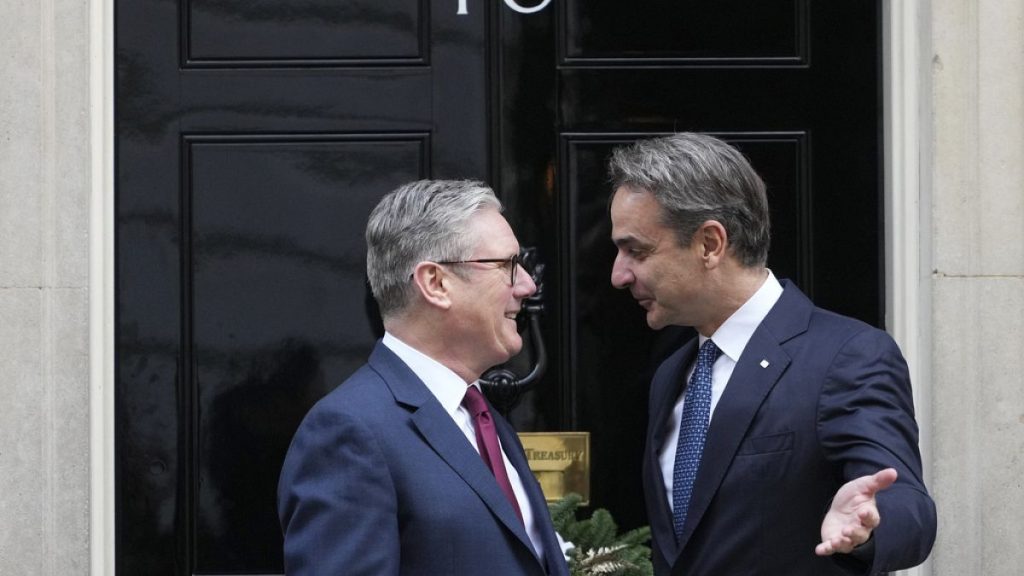The ongoing debate regarding the Elgin Marbles, also referred to as the Parthenon sculptures, continues to fuel tensions between Greece and the UK. Currently, UK law restricts the British Museum from permanently returning these artefacts to Greece, despite ongoing conversations about a potential long-term loan arrangement. Recent discussions between Greek Prime Minister Kyriakos Mitsotakis and British Prime Minister Rishi Sunak have indicated a willingness to explore options, albeit within the confines of existing legislation that prevents any permanent transfer of ownership. The British government has reiterated that it will not alter the law governing the status of the Elgin Marbles, which has historically resulted in a friction-filled relationship between the two nations.
In a noteworthy meeting in London, Prime Minister Mitsotakis and Labour leader Sir Keir Starmer discussed the possibility of a deal pertaining to the Elgin Marbles. Reports suggest that Mitsotakis utilized the platform to raise the pressing issue, and although Starmer’s office initially stated the topic wasn’t on their agenda, there were indications that the British Prime Minister would not obstruct potential negotiations between the Greek government and the British Museum. This emerging dialogue sheds light on the evolving attitudes towards the sculptures, and importantly, a recognition of the need for a resolution that could appease both nations.
The Elgin Marbles have long been a contentious point in cultural repatriation discussions, with significant political ramifications. Last November, Rishi Sunak had canceled a planned meeting with Mitsotakis, accusing him of using the issue to gain political traction. Starmer criticized Sunak for this decision, labeling it as “petty politics,” reflecting the complexity of national sentiments surrounding historical artefacts. Greek officials responded by downplaying the incident, emphasizing the necessity of maintaining diplomatic discourse to resolve the issue encompassing the Elgin Marbles.
Public opinion in the UK appears to pivot towards supporting the return of the sculptures, as a recent YouGov poll indicated that 53% of British voters are in favor of their repatriation to Greece. Meanwhile, 24% stand in opposition to the return, and 23% are uncertain. This emerging public sentiment could impact future negotiations and the political dynamics involving both governments. The fact that the British Museum remains legally barred from returning the artefacts should be viewed through the lens of evolving public opinion, signaling potential shifts in governmental attitudes in the long term.
However, notable skepticism exists concerning Labour’s commitment to addressing the matter effectively. Conservative shadow culture minister Saqib Bhatti criticized Starmer following his meeting with Mitsotakis, suggesting that his willingness to entertain a return of the Elgin Marbles shows a capitulation to “the radical left.” Such remarks underscore the politicization of cultural property and how discussions surrounding the Marbles are entangled with party politics in the UK, complicating the potential for any meaningful resolution.
Despite ongoing dialogue and shifting public opinions, the British Museum has confirmed that any decisions regarding the Elgin Marbles, specifically about their potential long-term loan, remain strictly within its purview. Additionally, government spokespersons have reiterated that there are no plans to amend existing laws prohibiting a permanent return to Greece. Ultimately, the future of the Elgin Marbles hangs in a delicate balance, caught between legal constraints, political maneuvering, and cultural considerations that reflect deeper historical ties between Greece and the UK. As discussions continue, both nations must navigate this intricate web to find a resolution that respects their shared history while addressing the rightful ownership of the marbles.














